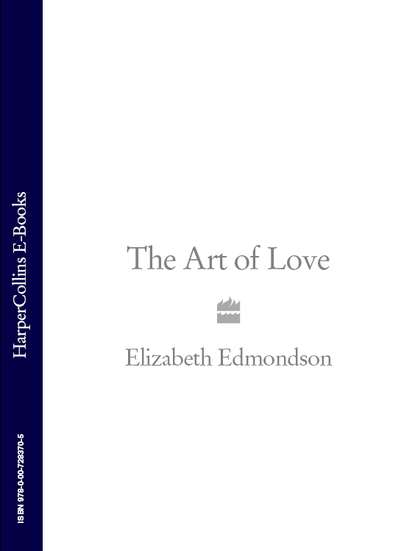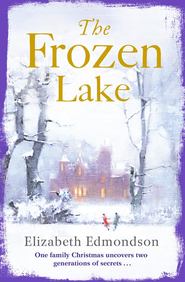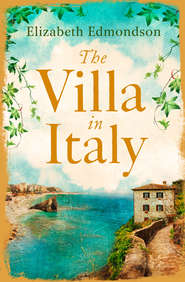По всем вопросам обращайтесь на: info@litportal.ru
(©) 2003-2024.
✖
The Art of Love
Автор
Год написания книги
2018
Настройки чтения
Размер шрифта
Высота строк
Поля
Her eye fell on her passport photo, clipped to the passport application form. It was waiting for the birth certificate, so that she could take it to the Passport Office in Petty France.
What was it that it said on the accompanying instructions? The photograph had to be signed by an MP, a JP, a solicitor, a member of the medical profession, a clergyman. Who had to declare, in solemn words, that the photograph was a true likeness of…of whom?
How could anyone declare that the photograph was a true likeness of Polyhymnia Tomkins, when no one in the whole wide world knew or had ever known Polyhymnia Tomkins?
She’d intended to go to her old school to ask the headmistress to sign it. How could she look Miss Murgatroyd in the eye and say, ‘Actually, I’m not Polly Smith, and the woman you knew all the years I was at school as my mother is no such thing. I’m her sister’s illegitimate daughter.’ Polly grew pale at the thought. Who could she ask to sign it? Could anyone sign it, given the circumstances? What would people think of Dora Smith if word got out that the girl everyone knew as her daughter was in fact her niece, father unknown?
The feeble grey light of a November dawn was spreading across the sky before Polly fell asleep again, and when the alarm clock went off with raucous enthusiasm, she felt as though she’d had no sleep at all.
Well, she might as well get the birth certificate, she told herself as she washed in the basin. After that she would have to tackle the problem of the photograph.
This time, she went alone to Somerset House. Last time — was it only yesterday? — she had gone with a light heart, a sense of being on her way to the excitement of going abroad. Oliver had been with her, now, on her own, she found the imposing eighteenth-century building had a sinister air to it.
She hoped, unreasonably, that there would be a different clerk on duty, but no, the woman who was sitting at the enquiry desk was the same one, grey hair twisted into a severe bun, grey eyes enlarged by the pince-nez, eyes that didn’t look at all kind this morning, but full of suspicion.
‘You were here yesterday,’ the clerk said accusingly.
‘I was, but it’s a different name I’m looking for now.’
Polly hoped she was speaking with calm self-assurance, but the woman’s eyes glinted with malicious understanding.
‘Not who you thought you were? We get that all the time. They say it’s a wise child who knows its own father, don’t they? If you’ve got the details right this time, you should have no trouble.’
She went back to the cards she was filling in.
Polly cleared her throat and waited.
The woman looked up. ‘Well?’ she said sharply.
‘You said yesterday that people born abroad weren’t in these books.’
‘Are you now saying you were born abroad? Are you sure you’re English?’
‘Quite sure.’
The woman banged her hand down on the bell on the corner of her desk, and after a short pause, a lugubrious individual in a brown linen coat appeared.
‘Mr Grier will show you where to go.’ And, to Mr Grier: ‘Foreign.’
She bent her head again, and Mr Grier looked at Polly. ‘Which country?’
‘France.’
‘This way.’
They went out of the big room with its serried ranks of ledgers and along a corridor, then out into the central square. ‘It’s in a different section,’ he said, pushing open a door and standing back to let her through. They went along another passage, and he stopped at a door with a single word written on it: ‘Miscellaneous’.
It was a small room, with more of the red bound ledgers, but only a handful of them compared to the room they had left. ‘France,’ he said, hauling a volume down and laying it on the high wooden stand, which stood against one wall in a narrow gap between the shelves. ‘Leave the volume here when you’ve finished, I’ll put it back.’
Miscellaneous. That was what she was, miscellaneous. Wasn’t there a famous aristocratic woman in the eighteenth century who’d had so many children by various fathers that they were given the surname Miscellany?
The book opened at the year 1920 — how few English people seemed to have been born in France. After the war, they would mostly have been diplomats’ children, she supposed. Perhaps, being so close to England, women preferred to come back home to give birth. She turned back the pages until she came to 1908. And there, halfway down the page, she found the entry. Polyhymnia Theodora Tomkins.
She had a middle name; Dora Smith had never mentioned that. Theodora, Dora’s own name. Perhaps the sisters hadn’t been quite so estranged, after all.
She copied the details on to one of the slips of paper provided in a wooden box on the stand, and retraced her steps to the main desk. She handed the slip to the clerk, signed the form, which was filled in with firm, clear letters, and wrote her address.
‘It should arrive within the week,’ the clerk said. ‘You want a short certificate, do you? I see.’
Polly felt her colour rising, she resented the clerk’s knowing look. A short certificate, proclaiming her illegitimacy to the world, was to be despised.
That’s that, she said aloud as she stepped out into the Strand. The first step had been taken to bring Polyhymnia Tomkins to life.
Perhaps as Polyhymnia she would turn out to be quite a different creature from her old self. Even if she were Polly Tomkins — and no one would use a name like Polyhymnia on an everyday basis, for heaven’s sake — a Polly Tomkins must be a different person from a Polly Smith.
Or was that so? If Polly Smith married a Mr Tomkins, would she be different from when she used her maiden name, was a Tomkins in essence different from a Smith? Would she become a different person when she was Polly Harrington?
Yes, she would be different, because she would be a wife, and in due course a mother.
The thought depressed her.
The last traces of the previous day’s fog had been blown away by the brisk westerly wind that brought instead gusts of rain sweeping across the city. People walked quickly, heads down, black umbrellas held aloft. Polly didn’t have an umbrella, she had given up on umbrellas a long time ago, since, unless it was raining and the brolly in her hand, she invariably left it somewhere. She turned up the collar of her mac and stood for a moment in a tobacconist’s doorway, out of the rain, while she decided what to do.
She could go back to her studio and work. No; the painting on her easel at the moment wasn’t coming out as she wanted it to, and it grew more unpleasing by the day. Figures on a street, but as Oliver remarked, it looked like the worst excesses of the industrial revolution, with gaunt figures against a backdrop of chimneys.
‘It’s London.’
‘Never. It’s undoubtedly some dreary northern street, you’ve caught the spirit of disillusion and hopelessness wonderfully well.’
‘It’s meant to be Russell Square in the rush hour.’
‘One day, Polly, you’ll find what you really want to paint, and it won’t be rat-coloured figures in a dismal landscape, no, nor those fetching but trivial book jackets you do for WH Smith. Nor touching up flower paintings in Rossetti’s workshop.’
‘The jackets and the flowers make me money.’
‘Of course, and even an artist must live, if only on eggs and soup. I daresay you could make an excellent career out of nothing but the book jackets; they have a charm which is, you don’t need me to tell you, quite lacking in your paintings.’
His words had stung Polly. No artist himself, he chose to find his company among artists, and was renowned for having an eye and an unerring instinct for putting his finger on the weakness in any artist’s work. And Polly, honest with herself, had to admit that her art was never going to please her or anyone else unless it changed dramatically.
Her friend, Fanny Powys, happy in her own work of silkscreen printing, had tried to cheer Polly up.
‘Oliver doesn’t bother to make his sharp remarks about painters he doesn’t think have any talent. If he’s polite, you know that artist’s a no-hoper.’
And Fanny should know, for it was at the private view of an exhibition of her prints that she had introduced Oliver to Polly. Polly, her attention entirely on a vigorous design taken from the whorls of oyster shells, had paid scant notice to the tall man who remained standing beside her.
‘It’s a matter of patterns,’ he said. ‘That’s what makes Fanny’s work different from most of her kind.’
And Polly had found herself drawn into a lively discussion about silkscreen printing, which led to wider topics of contemporary art. Polly was amazed that Oliver, who was, he had at once told her, not an artist, should have such an eye, such a quick appreciation of what artists such as Fanny were about.









